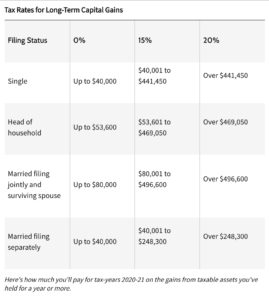Sell A Tenant Occupied Home
There are several reasons why you might be ready to sell an investment property. Perhaps it’s time to take advantage of the appreciation value, or maybe you need more time to focus on other investment opportunities. Whatever the reason is, there are a few things you should know about trying to sell a tenant-occupied home. Keep reading to learn about the challenges of selling your home with tenants in place and learn how we can help walk you through the process.

Challenges With Selling A Tenant-Occupied Home
Selling a tenant-occupied home will look a little different than listing a traditional property, but that does not mean it can’t be done. Here are a few challenges to consider before attempting to sell a tenant-occupied home:
- The buyer pool will likely be smaller
- Showing and marketing the home can be more difficult
- The property condition is harder to control
Smaller Buyer Pool
Arguably One of the bigger obstacles investors face when selling a tenant-occupied home is appealing to a smaller pool of buyers. Many buyers are not willing to take on tenants, and instead want a property they can move into right away. A tenant-occupied home can discourage many traditional buyers, as they are likely selling a previous home or moving out of a rental on a set timeline. Tenants will impact the listing and selling process. Keep in mind that this may cause the property to sit on the market for longer than expected as there’s a smaller number of buyers in the market willing to purchase a property with tenants in place.
Showings Can Be More Difficult
It can be harder to schedule the necessary showings, inspections, appraisals, and more with tenants living in the property. You will need to provide them with advance notice, and it can be challenging to coordinate with multiple people. Further, you want to avoid frustrating your tenants with constant requests to get inside the home. Buyers may become less interested in the property in favor of homes with more flexible showings, which can further decrease your pool of buyers. COVID restrictions also make it difficult to have open houses, as there may be limits and restrictions on the number of people allowed in the home at one time.
Condition Will be Harder to Control
Clean, tidy, and staged homes generally tend to sell faster and for higher amounts than those who are not. Tenant-occupied homes can challenge this industry norm because the property’s condition will be largely out of your control during the selling process. You will not be able to stage the property or have it vacant for listing photos and showings. The cleanliness of the home will depend on the cleanliness and tidiness of the tenant, and you will have less opportunity to fix or upgrade anything before potential showings or even the Home Inspection. Not only does this impact the potential to add value to the home, but buyers may find themselves in a stronger position to negotiate the final sale price further down, depending on the results of the home inspection.
Alternative Strategies To Selling Your Tenant-Occupied Home
The challenges above should not discourage you from selling your tenant-occupied home. There are several creative solutions that can be used to get the most of your investment property:
- Wait until the home is vacant to sell
- Incentivize tenants with cash for keys
- Sell to a Cash buyer
Wait Until the Home is Vacant
Depending on how quickly you need to sell, you can wait until the property is vacant to put it up for sale. This can help attract more buyers and give you control over the condition of the property. However, there are certain regulations to consider when waiting for a vacancy. You will likely need to issue a 30 or 60-day notice to the tenants, depending on how long they have been in the home. This calls into question multiple notices and important paperwork that, if not completed correctly, could invalidate and complicate the eviction process even further. It is also important to consider the additional tenant protections that were added in San Diego county as a result COVID-19. As of the time of this writing (June 2021) the eviction moratorium is likely to continue through the end of summer. It may be challenging to work with tenants without the help of a property manager.
Cash for Keys

Another option in selling your tenant-occupied home is through a cash for keys agreement, which essentially means paying tenants a sum of money to move out of the property within a certain number of days. This can create a win-win scenario where you, the owner, gain possession of the home earlier than the lease expiration date, and the tenant receives cash that they can use to transition to their next living situation. These legally-binding private contracts are a great way to incentivize tenants to move out before the end of the lease (and to avoid the legal hurdles of an eviction).
This can allow you to sell the property sooner, but it does come at a cost. If you’re wondering: “How much should I give a tenant for cash for keys?” There is no correct answer or industry standard. While there is not a set amount you have to offer, there are regulations surrounding cash for keys renters’ rights. Consider how long the tenants have lived in the property, how early they’re leaving, and how much you can offer without undermining your return on investment.
Sell to a Cash Buyer
There are buyers who are willing to take on tenant-occupied properties by either keeping the tenants in place or paying and facilitating a cash for keys agreement with the tenants directly. This is a great way to sell the property quickly and avoid losing money with a cash for keys agreement. Investors may find this to be the most convenient solution because they will not have to wait for the property to be vacant. Cash buyers, like Ritsel Homes, will also be able to close on the property in as little as three to five days.
Cash buyers typically accept as-is properties, allowing for minimal inspections and viewing. Ritsel Homes will request two appointments at the home. While other buyers may need more time at the property, this is still a quick timeline compared to traditional transactions. Less property walkthroughs and inspections means less coordinating with and disturbing of the current tenants in place. This creates a relatively seamless experience for tenants, as the buyers assume the same terms of the lease. Security deposit money would transfer at the time of the sale, and you as the seller can move on after a clean, successful, easy transaction.
Get an easy, no nonsense cash offer on your Rental Property today!
~ CLICK HERE ~
Summary
It is entirely possible to sell a home with tenants in place — though it can present some challenges. Property owners will need to coordinate with tenants to successfully market the property to a smaller pool of buyers. Luckily, there are a few alternatives that can provide investors with a quick sale and simple closing. Consider how a cash buyer could help you sell your tenant-occupied home, so you can get started on your next investment opportunity.
SOURCE: CT Homes (June 7, 2021) – Can You Sell A Tenant-Occupied Home?





